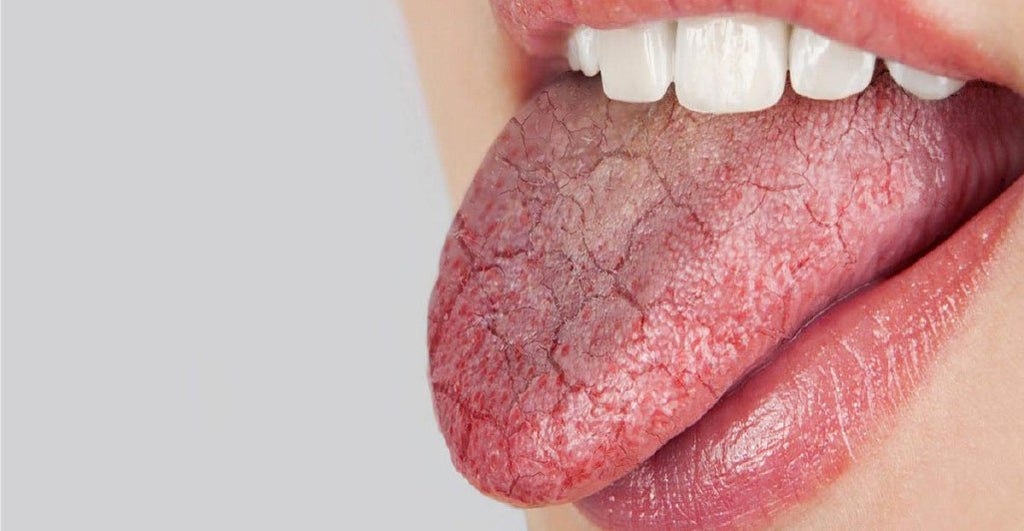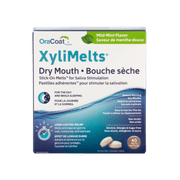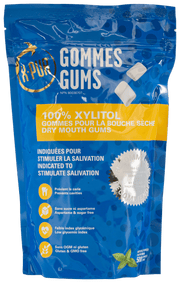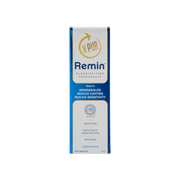
Xerostomia: Why You Shouldn't Ignore Dry Mouth
It's a cold winter night, your system heater is running at full power, and you wake up with a very dry mouth. This is completely normal ! You take a sip of water and fall back into your peaceful sleep.
However, for about 20% of Canadian adults, dry mouth and its inconveniences are part of their daily lives. Xerostomia, better known simply as the phenomenon of dry mouth, is a deficiency in the production of saliva by the mucous membranes of the mouth. This is because the salivary glands do not or no longer produce sufficient salivary flow to keep the mouth moist.
Saliva does not only have a role to play in the comfort of the mouth and throat. The role of saliva is to protect the oral cavity by acting as a natural defense system. The functions performed by the salivary glands are:
- Defense and immunity: they produce proteins that play a role in the immune system
- Digestion, taste and utterance: dissolution of food components and ease of speech
- Lubrication: important protective role of the mucous membranes buccal (gastric reflux)
- Maintenance of the microbial flora: antibacterial, antiviral and antimycotic agents. When the level of saliva decreases, infections that affect the nose or mouth are more likely to appear.
- Preservation: maintaining the pH and reducing the risk of cavities.
- Remineralization: protects teeth by providing calcium and phosphate
- Tissue repair: ulcers and oral lesions
Insufficient saliva production: What are the symptoms of dry mouth?
Among the most common manifestations of xerostomia, some discomfort is reported by those afflicted by this condition. Also, some of the most common signs are a sticky sensation in the mouth, difficulty swallowing, chewing, speaking, a hard tongue, chapped lips and sometimes even an itchy tongue.
Beyond Discomfort
Dry mouth is unpleasant, but did you know that it could affect your oral health more severely? Indeed, the impact of dry mouth can produce the following effects:
- More prone to cavities
- Oral lesions
- Periodontal disease (gum disease)
- Soft tissue irritation
- Bad breath

Dry mouth: treatments and advices
Could it be xerostomia? Simple actions can have a big impact on saliva production and oral comfort. Also, feel free to discuss this with your dental health professional. He / She can offer you solutions to treat dry mouth. Here are some tips to improve dry mouth:
- Drink water regularly: not surprisingly, drinking water regularly throughout the day helps reduce dryness in addition to having a positive effect on your general health.
- Foods to avoid to counter dry mouth: Water is excellent for soothing dry mouth, but not all fluids produce this reaction. Coffee, sugary drinks, carbonated drinks and alcohol have the opposite effect! In addition, spicy or acidic food can make your symptoms worse.
- Quit smoking: In addition to making your mouth more dry, smoking can cause a host of other health problems.
- Activate saliva production naturally: Chewing produces a natural salivation reaction. Between meals, chewing xylitol gum, sucking on sugar-free candy or lozenges helps stimulate saliva production.
- Regular Teeth Brushing: Brushing your teeth with dry mouth toothpaste containing xylitol, a natural ingredient, helps protect your teeth from cavities since dry mouth makes you more prone to cavities.
Our X-Pur product line is well-renowned as a leader in solutions to reduce dry mouth. Our innovative solutions, high performance and based on rigorous scientific studies are effective for all people who suffer from dry mouth, even the most severe cases!
Sophie Bouchard























